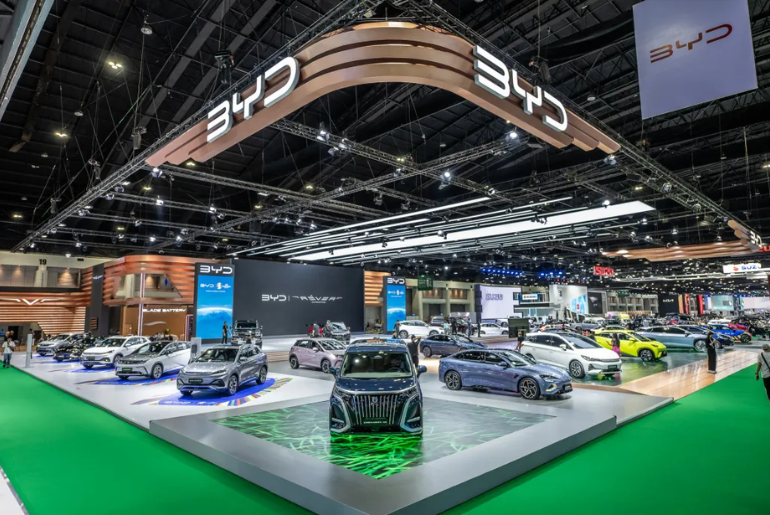BYD showcased its entire brand portfolio at the 45th Bangkok International Motor Show, positioning itself as a worldwide leader in new energy cars. During this occasion, BYD unveiled a number of new energy vehicle (NEV) models, including the pure-electric supercar YANGWANG U9 and the BYD SEALION, SEAL U, and SONG Max EV. This demonstration highlights BYD’s commitment to Thailand and the larger ASEAN market.
The BYD ATTO 3 long-range variant for 2024 was unveiled at the motor show, and pre-orders for the new energy MPV DENZA D9, which debuted in Thailand last year, were opened. BYD also revealed the new YANGWANG U9, BYD SEALION, BYD SEAL U, and right-hand drive SONG Max EV.
Beyond only showcasing products, BYD used the motor show as a venue to talk about its corporate responsibility and ambition. This is a great chance for BYD to interact with Thai consumers and present some of its most cutting-edge new energy (NEV) products and technology.
“We’re honoured to display some of the most advanced new energy technologies and products to consumers here and worldwide,” stated Liu Xueliang, General Manager of BYD Asia Pacific Auto Sales Division.
According to Reuters, Chinese automakers have pledged to invest a total of more than $1.44 billion in Thai production facilities.
The automobile industry spokeswoman for the Federation of Thai Industries, Surapong Paisitpattanapong, stated that when new facilities, primarily from Chinese automakers, come online, local EV production capacity is anticipated to exceed 100,000 cars by the end of 2024.
By 2030, the Thai government wants thirty percent of all cars produced to be BEVs.
In 2023, the nation’s EV sales made up just 9% of the total. By the end of 2024, it’s predicted that the number will double.
According to Krisda Utamote, president of the Electric Vehicle Association of Thailand, the expansion of after-sales service systems and competitive pricing have helped Chinese NEV brands gain popularity and acceptance in Thailand in recent years, thereby boosting consumer confidence.
Thailand is the first choice for Chinese automakers looking to enter the Southeast Asian market because it is the region’s major hub for auto manufacturing. According to industry experts, the production of right-hand drive models in Thailand facilitates their entry into international markets.
Over 76,000 new BEVs were registered in Thailand in 2023—a substantial rise from 9,678 vehicles in 2022. In the NEV market, Chinese brands held an 80% market share among them.


